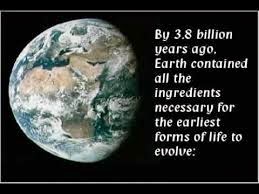Welcome to the AP World History Curriculum Framework!
Hopefully this page will give you a better idea of what we are up against this year and how College Board breaks down the entire history of the world into a "logical" framework.
The first two sections we focus on as a class in the first two days and through the use of our personal timelines as well as Tom Standage's "A History of the World in Six Glasses," is HISTORICAL PERIODIZATION & THE FIVE COURSE THEMES.
HISTORICAL PERIODIZATION:
Ya see! When you think to yourself that you are tasked with knowing ALL of world history as experienced by humans you might just freak out!!
But not to worry!
As you can see from the graphic above, 1414 years of our history make up 80% of the test! (Period 3-6)
Still not relieved?
Check this out...(click image for video)
David Christian "Big History"
Feel a bit better now? I hope so. IF you are a studious and diligent learner, you may have read the prologue in our Strayer book which addresses "Big History" as the above video did. BIG HISTORY is the "the history of everything" which is a historiographical approach that provides an enormous context for history- from the creation of the universe to the present- rather than just focusing on humankind.
Periodization is an important element in AP World History because it allows us to interpret history in a variety of ways according to time. According to the COSMIC CALENDAR, if the history of the world were crammed into a single 365 day calendar, with the Big Bang occurring on January 1st, then the history of Homo sapiens would encompass 250,000 years of the 13.7 billion years of the universe, and we would only exist in the last hours of December 31st!!
Periodization is how AP World History interprets and categorizes those last 250,000 years of the universe according to humans. We can (and will) do the same with our own lives! Even in the very, very brief moment of the universe we have existed, we could break down our lives into periods, or eras, or ages. HISTORIANS DO THIS ALL THE TIME AND MOST OF THE TIME, THEY DISAGREE!
We will disagree as well. History is not just a list of dates, dead people, old places and fixed events in time. History changes as we investigate and interpret it in new ways.
College Board and AP seeks to strengthen those historical interpretive thinking skills:
As you can see from the above diagram, the first 2 historical thinking skills listed are chronological reasoning and comparison and contextualization. In order to recognize patterns in history as well as compare events and put them into context, College Board has categorized history and its events into specific themes.
AP World History
5 COURSE THEMES and Key Topics:
In order to help us remember those themes we use the acronym, SPICE which stands for...
Social
Political
Interaction between humans and the environment
Cultural
Economic





No comments:
Post a Comment